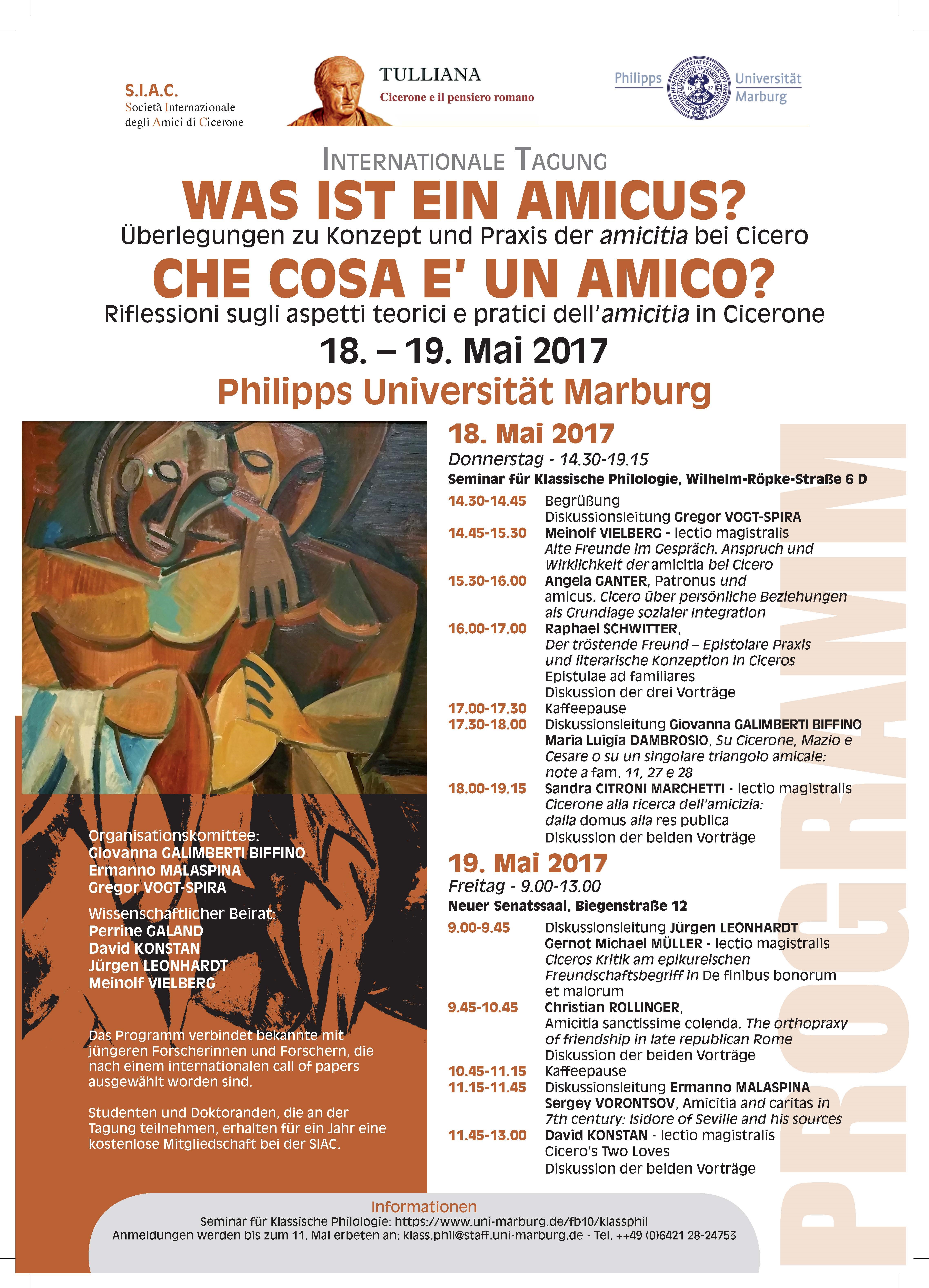Alte Freunde im Gespräch: Anspruch und Wirklichkeit der amicitia bei Cicero - Old Friends in Conversation: Aspiration and Reality of Friendship in Cicero
DOI:
https://doi.org/10.13135/2532-5353/2501Abstract
What is the relationship between the idealised pair of amici Scipio and Laelius, as portrayed in Cicero’s Laelius, and the real-life pair of amici, Cicero and Atticus, which appear in the Letters? Was Cicero’s intention to use the character of Laelius in the treatise to voice his own views on friendship – a character whose name Cicero regularly borrows in his letters as a pseudonym? Can we see in the guidelines set down by Laelius in the dialogue a reflection of Cicero’s friendship with Atticus and with other political figures, influenced as these were by the social upheaval of the Late Republic? The article seeks to answer these questions through a parallel reading of the Laelius and a selection of Cicero’s Letters to Atticus. In so doing, I argue that key theoretical principles of the dialogue are based on Cicero’s and Atticus’ shared lived experiences, as Atticus himself was able to appreciate (Lael. 5, cuius tota disputatio est de amicitia, quam legens te ipse cognosces).
In welchem Verhältnis steht das ideale Freundespaar Scipio und Laelius in dem gleichnamigen Dialog Ciceros zu dem realen Freundespaar Cicero und Atticus, das uns aus den Briefen entgegentritt? Mochte Cicero seine Dialogfigur Laelius, deren Namen er in den Atticusbriefen für sich als Pseudonym wählte, als Sprachrohr nutzen, um eigene Gedanken über das Wesen der Freundschaft auszudrücken? Spiegeln sich in den von Laelius formulierten Gesetzen der Freundschaft Erfahrungen, die Cicero mit seinem Freund Atticus, aber wegen veränderter gesellschaftlicher Rahmenbedingungen in der späten Republik auch mit politischen Freunden gemacht hatte? Der Vergleich paralleler Stellen des Laelius und der Briefe an Atticus ergibt, dass zentrale Theoreme des Dialogs auch auf persönlich gefärbten Erfahrungen beruhen, die Cicero in seiner Freundschaft mit Atticus gemacht hatte, und Atticus sich daher, wie Cicero es ausdrückt (Lael.5, cuius tota disputatio est de amicitia, quam legens te ipse cognosces), bei der Lektüre des Dialogs über die Freundschaft auch selbst wiedererkennen konnte.
Qual’è il rapporto tra la coppia ideale di amici Scipione-Lelio, rappresentata nell’omonimo dialogo di Cicerone, e la coppia reale di amici Cicerone-Attico, che ci appare nelle Epistole? Era intenzione di Cicerone usare il personaggio di Lelio, il cui nome egli sceglie nelle lettere ad Attico come proprio pseudonimo, in qualità di portavoce dei propri pensieri all’intorno all’essenza dell’amicizia? Nelle leggi dell’amicizia formulate da Lelio si riflettono le esperienze che Cicerone aveva fatto sia con Attico, sia – a causa dei cambiamenti sociali verificatisi nell’età della tarda repubblica – con altri amici nella cerchia dei politici? Dal confronto tra passi paralleli del Laelius e delle lettere ad Attico risulta che teoremi centrali del dialogo si fondano anche su esperienze attinte dalle vicende personali che Cicerone aveva vissuto con Attico e nelle quali, come testimonia Cicerone (Lael. 5, cuius tota disputatio est de amicitia, quam legens te ipse cognosces), lo stesso Attico, leggendo il dialogo sull’amicizia, aveva potuto riconoscersi.
Downloads
Downloads
Published
How to Cite
Issue
Section
License
Authors who publish with this journal agree to the following terms:
- Authors retain copyright and grant the journal right of first publication with the work simultaneously licensed under a Creative Commons Attribution License that allows others to share the work with an acknowledgement of the work's authorship and initial publication in this journal.
- Authors are able to enter into separate, additional contractual arrangements for the non-exclusive distribution of the journal's published version of the work (e.g., post it to an institutional repository or publish it in a book), with an acknowledgement of its initial publication in this journal.


 Ciceroniana On Line is recognised by ANVUR (the National Agency for the Evaluation of the University System and Research) as a CLASS A journal for the Sciences of Antiquity, Philology, Literature and History of Art (
Ciceroniana On Line is recognised by ANVUR (the National Agency for the Evaluation of the University System and Research) as a CLASS A journal for the Sciences of Antiquity, Philology, Literature and History of Art ( The journal is included in DOAJ. The DOAJ listing of the journals is available at
The journal is included in DOAJ. The DOAJ listing of the journals is available at  The journal is indexed in
The journal is indexed in  The journal has been included in ERIH PLUS. The ERIH PLUS listing of the journals is available at
The journal has been included in ERIH PLUS. The ERIH PLUS listing of the journals is available at 
